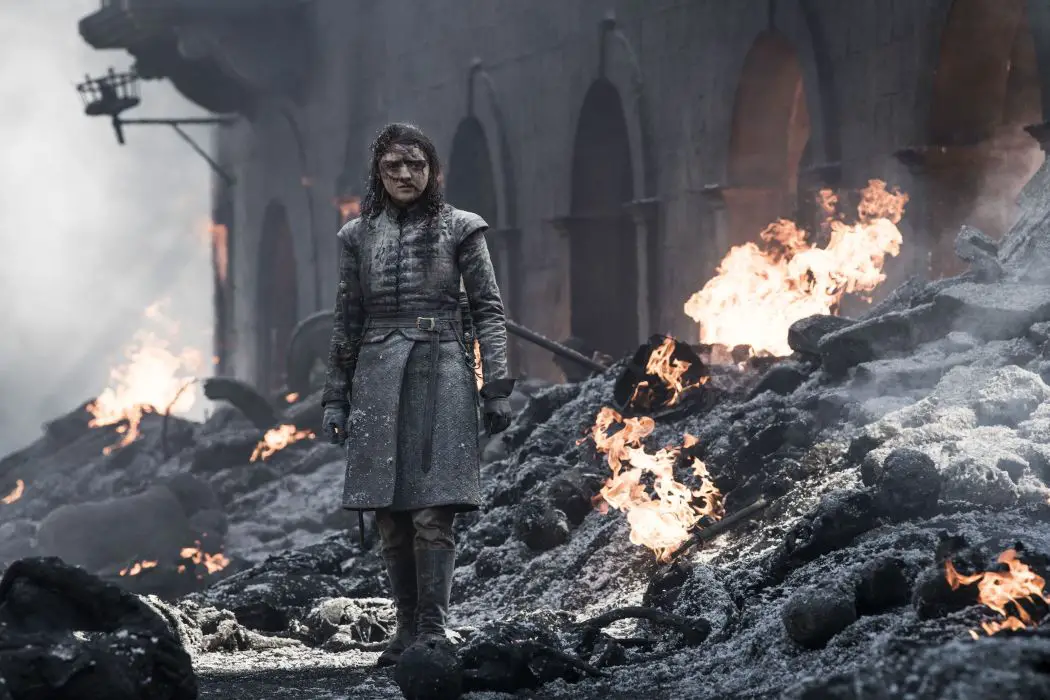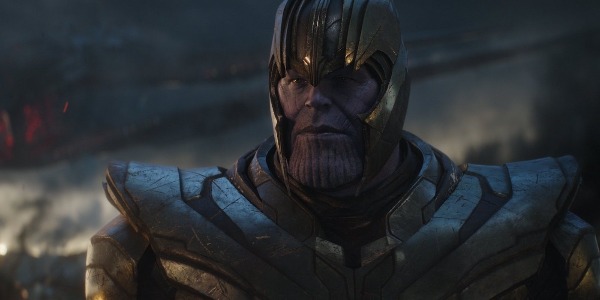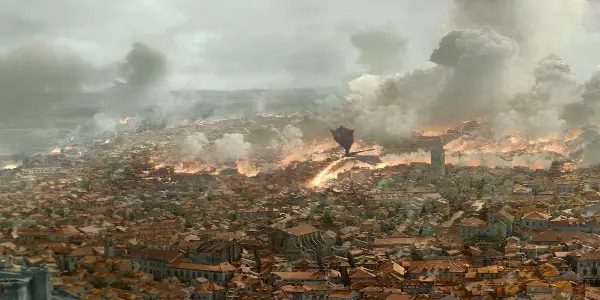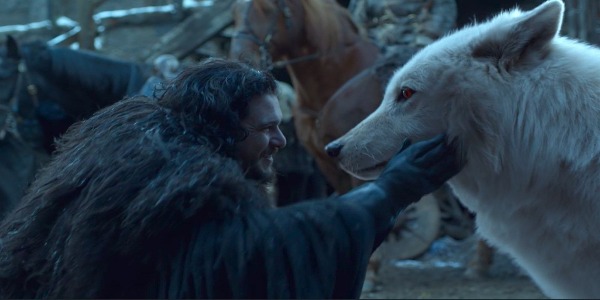After The Endgame: Comparing The Finales Of AVENGERS & GAME OF THRONES

I once made mashed potato for Rick Astley. It's not…
With the dust now settled, one thing has become abundantly clear. Over the last decade, pop culture has been entranced by the story of the Starks. Their collective ambit, spanning from the shadow of Titan to the furthest reaches of Westeros, has dominated film and TV since Tony first donned his rudimentary armour and Ned took a solemn swing of Ice.
Yet after a combined run-time of more than 120 hours, there is a nominal end to the story-telling. Sure, The Avengers will continue to spin in new, cosmic directions, while we are also due to dive irresistibly back into Westerosi folklore. But the fact remains: our collective watch has ended. So how did these two juggernauts approach their endgames, both in terms of set-up and pay-off?
In the Beginning
While 2008’s Iron Man signalled the start of something entirely new (even if people had experienced The First Avenger), Game of Thrones introduced us to a world buckling under the weight of its own history. While information in The Avengers saga tended to unfurl linearly, Game of Thrones revelled in its slew of information gaps. Ned’s familial discoveries cost him his head, while the series’ long-standing, central question revolved around the parentage of Jon Snow.
Though these storytelling choices point to a differing approach to worldbuilding, both sagas grappled with a sprawling narrative canvass. As the MCU expanded, a convergence point increased with each passing movie. Though the stories could exist as standalone adventures, Thanos was right, he was “inevitable.”

With each passing film, the MCU’s gaze was drawn irresistibly towards this clash. And when it came, the universe’s loose ends were stitched together, much like the gradual funnelling of storylines which we saw in the latter series of Game of Thrones. The Mad Titan’s messianic pursuit of the Infinity Gauntlet even felt blindingly similar to the maddening lure of the Iron Throne.
Game of Thrones may have had narrative sidelines, but the defining plot point was the pursuit of the thoroughly uncomfortable seat. David Benioff and Dan Weiss’ decision to name the series after the first book, and not the overarching ‘Song of Ice and Fire’ reflects this singular focus, as does the final episode’s title. The Infinity Gauntlet and the Iron Throne were both narrative MacGuffins, capable of corroding its pursuants as readily as the One Ring.
A Question of Character
The narrative comparisons continue into the sagas’ characters, but only to a point. There’s a stern moral code cut through both Jon Snow and Steve Rogers, for instance. If Thor: Ragnarok grappled with what the Norse God was without his hammer and fighting prowess, then it is at least comparable to Jaime Lannister losing his famously skilled sword hand. What’s more, the Arya Stark we see in seasons 7 and 8 carries the same red ledger and world-wise nous as Black Widow.
Despite these comparisons, it has always been clear that Game of Thrones operated in a much more ubiquitous shade of grey. Avengers: Endgame was all about defeating the bad guy in a much more clear cut way than season 8 of Game of Thrones, of course. Yet both ended with a similar flourish. We have passed through their collective endgames and have seen the gauntlet rendered unusable and the Iron Throne un-sittable.
In so doing, both sagas had to grapple with similar issues. Being able to tie up narrative loose ends in a way which rewarded both the characters and the story was always going to be difficult. Attempting to reconcile this with fans’ wants and wishes made it harder still.
Fire and Blood
Let’s take a look at the spectacle. Though we may have been expecting it of the Night King, it was the destruction of King’s Landing which was Game of Thrones’ very own Snap. Daenerys’ sharp turn towards tyranny may have felt rushed, but it nodded towards a worldview which aligned with Thanos’. In the end, it was the intoxicating promise of a clean slate which fuelled both characters.
The fall-out to both the Snap and the demolition of King’s Landing gave both sagas a crushing penultimate chapter. The opening third of Avengers: Endgame is a meditation on grief; its heroes de-powered and facing uncharted territory, both emotionally and geographically. For the first time, they had lost.

Compare this with the opening salvo of Game of Thrones’ finale. The de-populated streets of the Westerosi capital gave the final episode a sobering bite. Flipping the tables, Jon, Tyrion, Davos and more had won, but it felt so painfully like losing. As was the case with much of Season 8, the narrative destination we had arrived at felt plausible, but the way we got there didn’t quite match.
Yet in both victory and defeat, the ‘good’ guys were caught at their nadir emotionally. The Pompeii-esque carnage in King’s Landing rained down like an act of God, while the Snap was the act of an altogether different type of deity. Much like Steve’s forlorn words at the end of Infinity War, there was dejection carved across the faces of Jon and Tyrion in the wake of Dany’s divine act.
A Matter of Choice
Both The Iron Throne and Avengers: Endgame’s central theme was choice. The choice of whether to accept this new reality, this new world, or to take action against it. Both pitched a Campbellian call to action. Unlike many of the characters we see in Endgame, Tony Stark had successfully moved on. With a new family and a calm which had hitherto alluded him, he was reluctant to engage in a fight which he thought was unwinnable.
Yet the undercurrent to both finales was how the call of duty influenced these choices. Jon Snow, née Aegon Targaryen, never wanted a crown. He never coveted the command of the Night’s Watch, the title of King in The North or the lure of the Iron Throne. And yet, he was always a man who felt corseted by honour and duty. Though not by birth, he was always Ned’s son.
In their fabulous two-handed scene, Jon and Tyrion rounded on the idea that duty can mean the death of love, thereby inverting the idea put forward by Maester Aemon seasons ago. By killing Dany, Jon chose a sobering duty. Similarly, by taking the decision to don the gauntlet, knowing full well it will likely kill him, Tony Stark does what is right in the most stoic way possible.
Endgame is littered with characters making choices for the greater good. Black Widow’s death granted the Avengers the soul stone and a fighting chance. Above all, the Avengers were risking their lives for a goal which transcended all of them. Arya’s MVP moment captured a similar mood. She was throwing the dice one final time in the hope of saving everyone else.
Yet one of the most gut wrenching parts of Game of Thrones’ final few episodes was that the greater good became corrupted. Jon and Tyrion followed a person who they thought could deliver a brighter world, someone whose ambition transcended the confines of the wheel. That’s why, despite the somewhat optimistic ending, Game of Thrones’ conclusion felt incredibly bittersweet.
The Sense of an Endgame
With the endings seemingly tied up, the question of what to do with the remaining characters hung over both pieces. For Game of Thrones , there was the promise of (slightly) more meritocratic system of governance, even if democracy was treated like a punchline. Meanwhile, the sublime portals sequence in Endgame pointed towards a vibrant future for the MCU (both in terms of box office presence and the ‘real life’ implications of the film.)
This kernel of hope makes both endings somewhat uplifting. Though Jon is banished to the North, there is the sense that he is going home. Much like Steve choosing to spend the remainder of his life with Peggy Carter in an alternate reality, both characters found peace and belonging. If Steve was always a man stuck out of time, then Jon often felt like a man stuck out of place. Constantly searching for identity – whether that be as a Stark, man of the NIght’s Watch or even a Targaryen – he found it at the end.

Yet Jon’s ending elicited vitriol online. Fans clamoured for an ending which saw him take his ‘rightful’ mantle as king. They wanted a moment like Steve was given in Endgame, when he triumphantly wields Mjolnir, proving beyond all doubt that he is worthy. Indeed, in conventional fantasy terms, Jon’s was always the story around which the monomyth revolved. Here was a man who was plucked from obscurity but had a date with destiny.
His reluctance only made audiences more sure he was the chosen one. Yet Jon was never Harry Potter, destined to take on Voldemort (or indeed, the Night King). Nor was he Aragorn, the returning king whose divine right became more acute as the story progressed. Instead, as it transpired, Jon was always Frodo, pining to make it back home. Jon escaping to the North made perfect sense for his character, even if it didn’t fit the fantasy archetype. Indeed, a theme which Game of Thrones kept hammering home was that your lineage didn’t have to define you.
Turning the Page
The Avengers and Thronesian sagas were at their best when they put character at the forefront of their storytelling. Game of Thrones, in particular, was at the peak of its powers when it let characters breathe and grow. This was shown perhaps most acutely through Sansa, whose arc is one of the most intricate and powerful parts of the show. This was also the power of Peter Jackson’s Lord of the Rings trilogy, where, amid the spectacle, you could feel many of the characters growing across each narrative beat.
Game of Thrones and The Avengers fared less well when they mired into soupy, nondescript CG and flat action. Hardhome was groundshaking television because we saw the terror which the Night King’s hordes could evince. Thanos’ Snap was devastating precisely because of the character implications – not just for the fallen, but for those who remained. The Battle of the Bastards felt so suffocating because we could see Jon being crushed. In both sagas, it was character which propelled the story, not action.
Deciphering what effect these two monumental franchises had on popular culture will take a decade. And though they may not have broken the wheel in terms of storytelling, they certainly set film and TV on new and uncharted paths. If there’s one thing that unites them, it’s that at their best, these were character driven sagas.
Does content like this matter to you?
Become a Member and support film journalism. Unlock access to all of Film Inquiry`s great articles. Join a community of like-minded readers who are passionate about cinema - get access to our private members Network, give back to independent filmmakers, and more.
I once made mashed potato for Rick Astley. It's not really relevant to my passion for film but hey ho.













